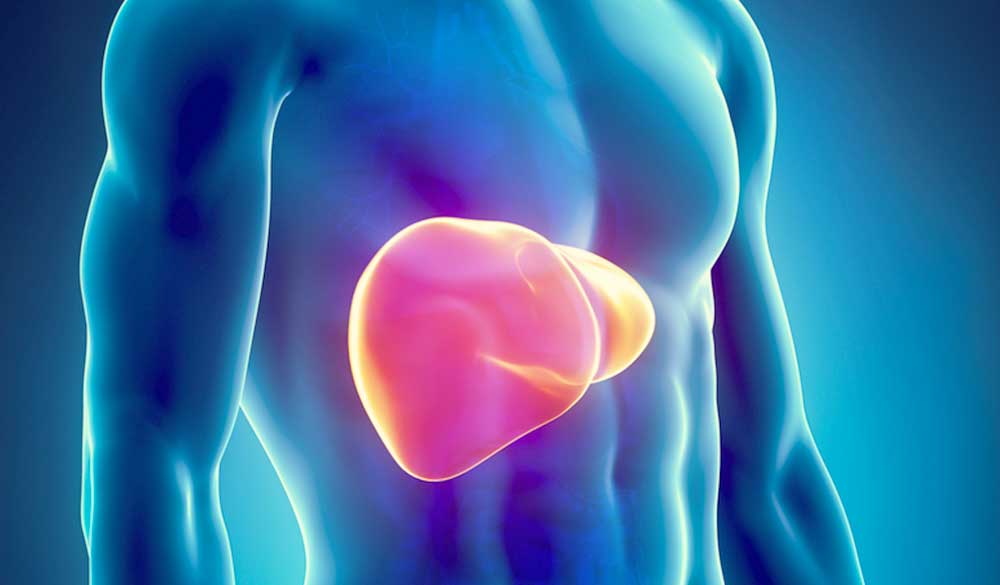Non-alcoholic fatty liver disease (NAFLD) is the most common chronic liver disease worldwide, with a histological spectrum ranging from simple fat deposition (steatosis) around the liver to the necro-inflammatory form, non-alcoholic steatohepatitis (NASH). This can eventually progress to cirrhosis, causing potentially fatal liver disease.
However, evidence now shows even mild liver inflammation with steatosis can lead directly to fibrosis and liver cancer, and it is predicted that within 20 years NAFLD will be the leading cause of liver related morbidity and mortality.[1]
NAFLD prevalence now parallels that of obesity and type 2 diabetes mellitus. Interestingly, these diseases also play an important role in the development of NAFLD, and similarly, lifestyle modifications can be effective but have low compliance rates.
Therefore, to reduce the known pathogenesis of NAFLD—increased liver enzymes, inflammatory markers and adipokines—many nutritional and plant-based interventions are at the forefront of research.[1,2]
Silymarin and silibinin (from Silybum marianum (milk thistle)), caffeine, bioflavonoids, curcumin, resveratrol and other natural polyphenols have been found beneficial for NAFLD in studies and preclinical trials.
For example, silybinin, especially if given with phosphatidylcholine and vitamin E, has been shown to improve insulin resistance, liver enzymes, lipid profiles and steatosis,[3] while a recent preclinical trial found silymarin reduced hepatic steatosis in a mouse model by regulating lipid metabolism and oxidative stress, and providing systemic circulatory benefits. These findings shed new light on NAFLD treatment.[4]
Additionally, for the first time, a recent randomised double-blind, placebo-controlled, randomised study tested the effects of coenzyme Q10 (CoQ10) on inflammatory biomarkers of NAFLD. They also included liver enzymes, adipokines, and hepatic steatosis grade.
With a dose of 100mg per day, given to 21 subjects for three months, researchers observed significant beneficial changes in:
- liver aminotransferase enzymes (AST and GGT)
- high-sensitivity C-reactive protein (high-s CRP)
- serum tumour-necrosis factor alpha (TNF-α)
- grade of hepatic steatosis
- adiponectin.
Supplementation did not significantly affect other liver enzymes markers (AST/ALT ratio) or serum levels of the inflammatory interleukin 6 (IL-6). The authors concluded that CoQ10 may
be a good adjuvant therapeutic option for improving systemic inflammation and biochemical variables in NAFLD.[2]
More clinical trials are need to confirm the full benefits of polyphenols, CoQ10 and other nutritional supplements in the treatment of NAFLD; however, current research provides valuable evidence for their use in this prevailing liver disease.
References
- Calzadilla Bertot L, Adams LA. The natural course of non-alcoholic fatty liver disease. Int J Mol Sci 2016;17(5):774. [Full Text]
- Farsi F, Mohammadshahi M, Alavinejad P, et al. Functions of coenzyme Q10 supplementation on liver enzymes, markers of systemic inflammation, and adipokines in patients affected by nonalcoholic fatty liver disease: a double-blind, placebo-controlled, randomized clinical trial. J Am Coll Nutr 2016;35(4):346-353. [Abstract]
- Salomone F, Godos J, Zelber-Sagi S. Natural antioxidants for non-alcoholic fatty liver disease: molecular targets and clinical perspectives. Liver Int 2016;36(1):5-20. [Full Text]
- Ni X, Wang H. Silymarin attenuated hepatic steatosis through regulation of lipid metabolism and oxidative stress in a mouse model of nonalcoholic fatty liver disease (NAFLD). Am J Transl Res 2016;8(2):1073-1081. [Full Text]
DISCLAIMER:
The information provided on FX Medicine is for educational and informational purposes only. The information provided on this site is not, nor is it intended to be, a substitute for professional advice or care. Please seek the advice of a qualified health care professional in the event something you have read here raises questions or concerns regarding your health.



